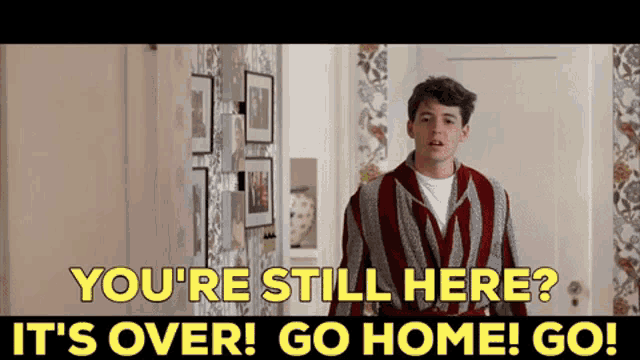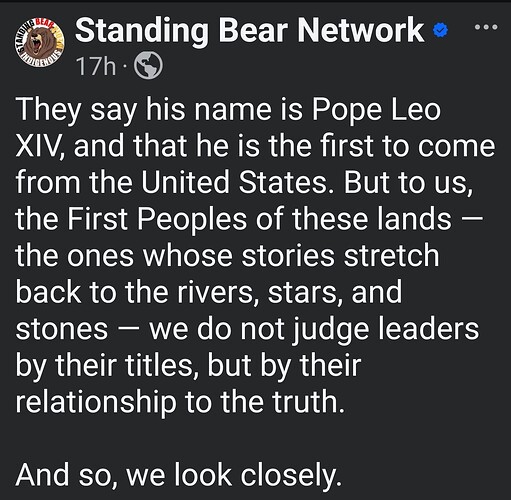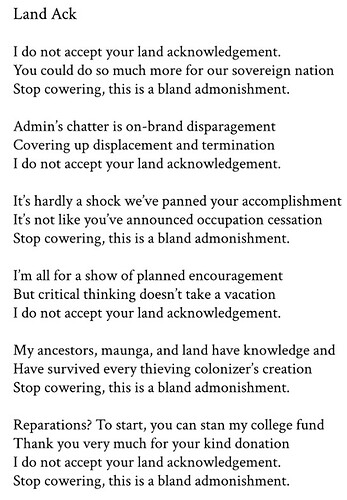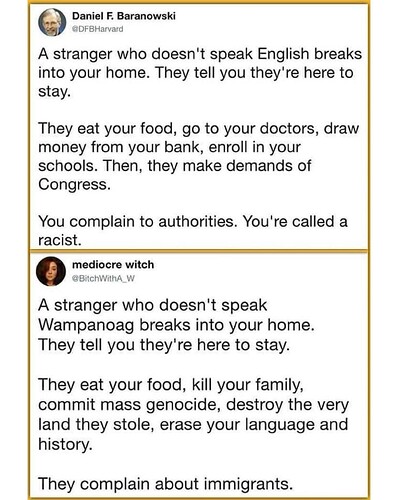Sounds about right.
Before the white smoke rose in Rome, Robert Francis Prevost spent years in Peru, walking among Indigenous peoples in the Andes. He was a missionary there — a man of the Church bringing his teachings into communities that already had their own ways of praying, healing, and knowing the land. Some say he offered education and support. Others know the weight that always follows when priests arrive with crosses in one hand and promises in the other.
He is no stranger to our communities — not by name, but by role.
A missionary.
To many of our ancestors, that meant more than faith. It meant the dismantling of language, the replacing of ceremony, the burning of sacred objects.But this Pope, like the one before him, speaks of bridges.
He says he wants to walk with the poor. To reach those forgotten.
He says he respects the work of Pope Francis, who came to our lands, apologized for the Church’s role in the genocide of residential schools, and asked for forgiveness — even if the Doctrine of Discovery still hangs like a ghost in Vatican vaults.Pope Leo XIV brings with him the promise of continuity — to build on what was started.
But we do not need continuation. We need transformation.We need a Pope who will not just visit our territories, but return what was taken.
We need more than apologies — we need the Vatican to rescind the very doctrines that declared our lands empty and our lives disposable.
We need our languages supported, our spiritual leaders respected, our sovereignty recognized — not just in words, but in deeds.If Pope Leo is truly listening, then let him hear this:
We are still here.
We have our own ways.
We are not seeking salvation — we are seeking respect, justice, and the restoration of what was stolen in the name of Christ.If he is to walk beside us, he must come not as a teacher, but as a guest.
Not as a savior, but as a learner.Let the bridge he builds be made of truths finally spoken —
and foundations set not in Rome,
but in the lands where our ancestors still whisper to us through the trees.Tapwe,
Kanipawit Maskwa
John Gonzalez
Standing Bear Network

I really hope people listen.
Oh I see, it’s a book!
This poem from it is great. I hate listening to and reading “land acknowledgements.”
I should probably have been clearer! When the onebox didn’t really make things quite obvious enough I just ended up rolling with it for whatever reason.
Anyway, I ordered it! I have their first chapbook (somewhere…) and it’s great.
Thanks for the link, I think I’ll order it too. ![]()
Yõg Ãtak: Meu pai, Kaiowá.
“Yõg ãtak: My Father, Kaiowá” tells the story of Sueli Maxakali and Maísa Maxakali’s search for their father, Luis Kaiowá, from whom they were separated during the military dictatorship in Brazil. The film follows the filmmaker’s journey to reunite with her father, as well as the struggles faced by the Tikmũ’ũn and Kaiowá Indigenous peoples in defense of their territories and ways of life.
Directed by: Sueli Maxakali, Isael Maxakali, Roberto Romero, Luisa Lanna
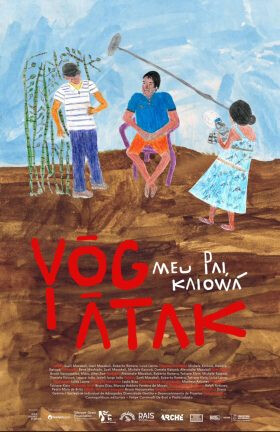
Ann Coulter
